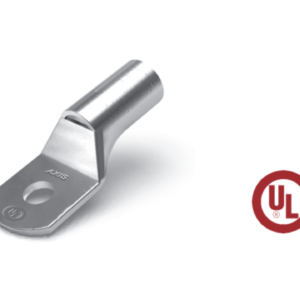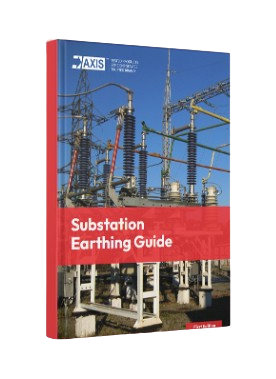Copper Cable Lugs are ideal for connecting large gauge wires that require significant power transfer or grounding. These lugs come in various cable lugs dimensions and allow wires to be connected through either crimping or soldering, depending on the lug type. One end of the copper lug connects to the wire via soldering, welding, or crimping, while the other end attaches to a termination or connection point using a bolt, screw, or spring clip.
Why Choose Axis Copper Lugs?
Our Copper Cable Lugs are known for their easy installation and reliable performance. Made from high-quality ETP Copper and tin-plated for protection against corrosion, they are perfect for outdoor use or in marine environments.
Our electrical lugs can handle cable sizes ranging from 1.5 sq mm to 1000 sq mm and provide a quick and secure connection. With a wide range of cable lugs dimensions, they are suitable for connecting heavy gauge power cables to bus bars, relays, batteries, solar power inverters, grounding devices, and more. They improve efficiency, safety, and cost-effectiveness, making them essential when dealing with copper lugs.
Showing the single result
-

1 Hole, Cable Lugs Standard Barrel
Select options This product has multiple variants. The options may be chosen on the product page
Testing of Axis Copper Lugs
At Axis, our Copper Cable Lugs go through rigorous testing to ensure quality and performance:
Electrical Conductivity Test:
- Measures how easily an electric charge can pass through a material.
- Axis Copper Lugs have an electrical conductivity of 99% IACS, indicating high conductivity and the use of pure ETP-grade copper.
Heat Cycling Test:
- Assesses the lug’s long-term performance.
- Axis Copper Lugs meet the criteria set by IEC 61238 for resistance and temperature, proving they are built for longevity.
Tensile Test:
- Determines if the lug can handle the required tensile load.
- Axis Copper Lugs pass the test with no slippage, confirming their ability to withstand real-world applications.
Secureness Test:
- Ensures the lug remains firmly attached to the cable under mechanical stress.
- Axis Copper Lugs show no slippage, proving they will remain secure even under stress.
Pull-Out Test:
- Determines the mechanical strength of the bond between the cable lug and the cable.
- Axis Copper Lugs withstand the required pull-out force, ensuring secure attachment even under extreme pulling scenarios.
By offering copper cable lugs in a wide range of dimensions and rigorously testing them for quality, we ensure that our clients receive reliable, high-performing products that improve efficiency, safety, and cost-effectiveness.
Applications of Copper Cable Lugs
Copper Cable Lugs are used in many applications, such as:
- Power Distribution Panels: Connect heavy gauge cables to bus bars, switchgear, and circuit breakers.
- Renewable Energy Systems: Ensure secure connections in solar power inverters, wind turbines, and battery storage systems.
- Telecommunication Networks: Provide reliable connections in telecommunication equipment and data centers.
- Marine and Offshore Applications: With tin-plated corrosion resistance, they are ideal for grounding and power transfer in marine environments.
- Automotive Industry: Ensure safe connections in vehicle electrical systems and battery terminals.
- Manufacturing Plants and Industrial Equipment: Enable high-current connections in industrial machines, transformers, and switchboards.
Benefits of Using Axis Copper Cable Lugs
Choosing Axis Copper Cable Lugs offers several benefits:
- High Conductivity: Made from high-quality ETP Copper, providing excellent electrical conductivity.
- Corrosion Resistance: Tin-plated for protection against corrosion, especially in marine environments.
- Wide Range of Sizes: Comprehensive cable lugs dimensions to handle cables ranging from 1.5 sq mm to 1000 sq mm.
- Easy Installation: Quick crimping or soldering techniques enable fast and secure connections.
- Durable and Reliable: Designed for long-term performance, ensuring safe electrical connections.
- Versatile Usage: Suitable for various industries, including power distribution, telecommunications, automotive, and renewable energy.




